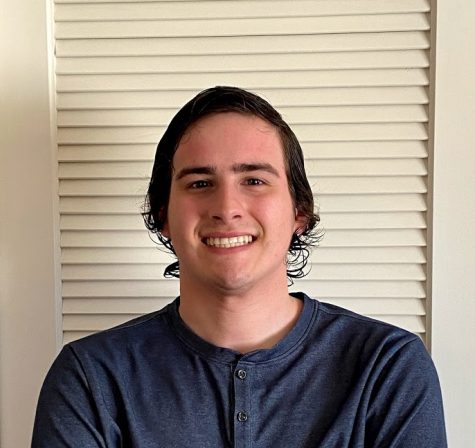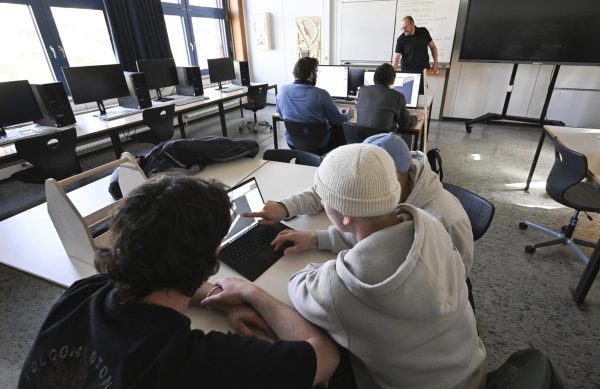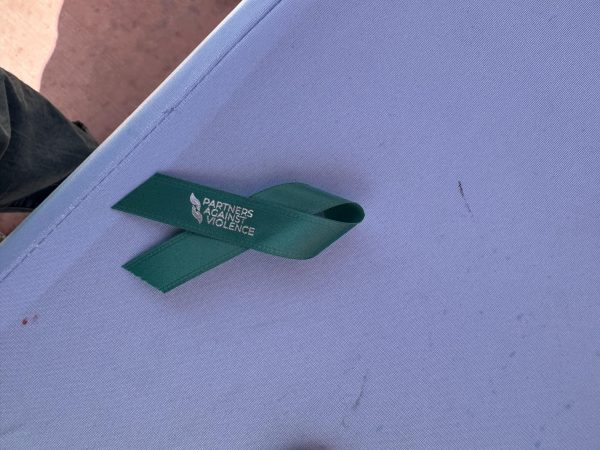Students react to mandatory vaccine or testing for spring semester
On Sept. 17, 2021, College of the Desert’s Board of Trustees approved that students and employees will need to show proof of vaccination or be tested weekly to be on campus for spring 2022. With this announcement, the college is following similar standards as California’s UC and CSU university systems but will only allow students who have been fully vaccinated to enter their campuses.
According to College of the Desert, students and employees over the age of 12 can choose among the three COVID-19 vaccines with full or emergency use authorization from the U.S. Food and Drug Administration. They will have until Jan. 31, 2022, the beginning of the spring semester, to submit proof of vaccination.
To aid students or employees who are currently unvaccinated, the college has partnered with Borrego Health to provide weekly vaccination clinics and PCR testing during the fall semester. Vaccinations and testing are free and are available regardless of immigration status or insurance coverage.
Whether they are vaccinated or unvaccinated most students are understanding of the precautions that the college is taking to ensure the safety of everyone. Wesley Horns, 19, said, “I am okay with people being tested if they aren’t fully vaccinated only if the college provides it.”
Others feel having testing weekly could have drawbacks. Jhordao Ruiz, 21, a current student at College of the Desert, said, “I would not feel comfortable because weekly tests seem unreliable as they can contract COVID-19 at any point.”
As COVID-19 has seven variants, the Delta variant seems to have the biggest risks to people’s health since the pandemic began. According to the New York Times, “People who are infected with the highly contagious Delta variant are twice as likely to be hospitalized as those who are infected with the Alpha variant. Fewer than 2% of the infections occurred in fully vaccinated people.”
As the college this fall has increased the number of in-person classes, it is expected that some students could want split classrooms of vaccinated and nonvaccinated students. Currently, students are in mixed classrooms of nonvaccinated and vaccinated. To keep everyone safe, students and staff are required to wear masks, be separated by at least one seat and have plastic dividers between each other.
“I would be okay with split classrooms as long vaccinated and nonvaccinated people are treated equally. If classes can’t be split if students wear masks and follow the protocols everyone should be okay,” said Horns.
According to the Desert Sun, California’s UC and CSU schools have enforced strict COVID-19 rules to only allow fully vaccinated students and employees on their campuses. Some students feel this is a good idea to keep people safe at College of the Desert, but it could hinder the students that need in-person learning and don’t want the vaccination. “I feel like COD should be open to everybody but the college should figure something out regarding the constant COVID-19 testers to help accommodate them and keep them safe, while also enforcing masks and social distancing,” said Ruiz.
Before the 2020 spring semester, College of the Desert had a malware attack that affected its website and made it difficult for the college to operate online. This incidenet highlights the risks that College of the Desert will be taking to store the vaccination records of each student.
“I’m not comfortable with the College of the Desert taking student’s information. Cyber attacks are usually rare, and the school has definitely bettered their cybersecurity, however, I still feel though people should have the choice for those who want to opt-out of giving information,” said Ruiz. ” The biggest concern I have is that when they bring more classes back in the spring is that they wouldn’t have enough core classes for each major,” said Horns.
College of the Desert may grant exceptions for any students who have religious objections, qualifying disabilities or underlying medical conditions. Students with questions regarding an exemption are encouraged to contact the college’s Disabled Students Services Program.

Andrew is a journalism major. This is his second year with The Chaparral, and he covers sports. Andrew's favorite sports include golf, football and motorsports....






